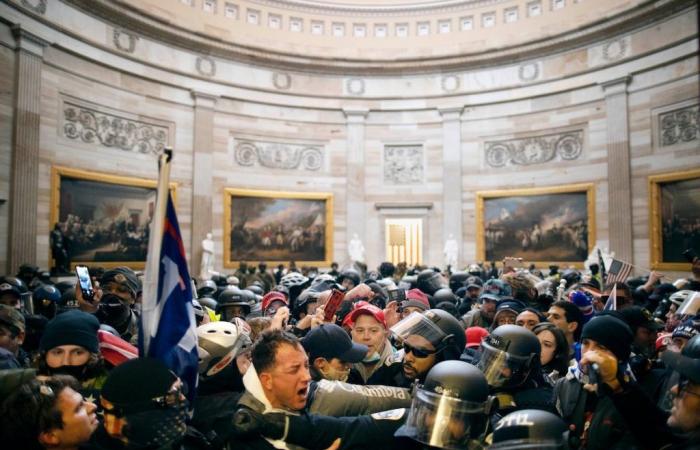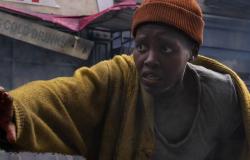
Hundreds of people who participated in the assault on the Capitol have been charged with corruptly obstructing, influencing or impeding an official proceeding. The official event interrupted was the certification of Joe Biden’s victory in the 2020 presidential election. Former United States President Donald Trump is charged with that crime in the Washington criminal case for his own attempts to reverse the election result. However, the Supreme Court has issued a ruling in the case Fischer vs. the United States which disallows the application of the rule in such cases. After Thursday’s debate in Atlanta, it is a new victory for Trump, who is still waiting for the Supreme Court’s ruling on his presidential immunity, expected on Monday.
“To prove a violation of the [artículo en cuestión] “The Government must establish that the defendant impaired the availability or integrity for use in an official proceeding of records, documents, objects, or other things used in an official proceeding, or attempted to do so,” the Supreme Court said in a ruling that it approved by six votes to three, but without fully aligning itself on ideology. A conservative judge, Amy Coney Barrett, voted against and a progressive judge, Ketanji Brown Jackson, in favor. In other words, storming Congress is not obstruction of an official proceeding, because it does not involve destruction of evidence or anything like that.
The Supreme Court has ruled on an appeal by Joseph Fischer, a defendant accused of participating in the assault on the Capitol on several charges, but its doctrine extends to all those accused and convicted of the same offense for the revolt to prevent the certification of Biden’s victory.
During the oral hearing of the case, the conservative judges already questioned whether an article that was drafted within a law intended to punish the destruction of evidence in financial crimes could be applied to what they called political “protests.” They pointed out that opening that door meant granting the Prosecutor’s Office a free pass to pursue the protests it deemed appropriate. Some also suggested that this rule had never been applied in that sense.
“The Government’s theory would also criminalize a wide swath of prosaic conduct, exposing activists and pressure groups to decades in prison,” the ruling now says. “The government’s interpretation would give prosecutors broad discretion to seek a maximum sentence of 20 years for acts that Congress saw fit to punish with much shorter sentences,” he adds.
Trump did not directly participate in the assault on the Capitol, but his attempts to obstruct the official procedure of declaring Biden’s victory in the elections were carried out through other means. However, the Supreme Court’s doctrine may free him from two of the four crimes for which he is charged in the Washington case for trying to alter the electoral result of the 2020 elections.
Knowing what happens outside is understanding what will happen inside, don’t miss anything.
KEEP READING
The four crimes he is charged with in that case are: conspiracy to defraud the United States Government, conspiracy to obstruct an official proceeding, obstruction or attempted obstruction of an official proceeding, and conspiracy to violate civil rights. The second and third crimes correspond to the criminal figure analyzed by the Supreme Court and its decision greatly complicates the success of these two accusations against Trump.
The wording of the article seemed to cover the interruption of a procedure such as the certification of Biden’s victory, as the progressive judges stressed, but the place where it is located, among rules intended to avoid the destruction of evidence, led to doubting the spirit with which was regulated. The Supreme Court considers that rules with imprecise wording must be applied restrictively.
The crime in question is contemplated in the United States penal code in article 1512 of the US Code 18, which indicates in its letter (c)(2) that whoever destroys evidence or “otherwise obstructs, influences or impedes any official proceeding, or attempt to do so, shall be fined under this title or imprisoned not more than 20 years, or both.” However, the headline of that provision is: “Interference on a witness, victim or informant.” That article was passed as part of the Sarbanes-Oxley law of 2002, aimed at prosecuting white-collar crimes. In the English original, furthermore, there are several words that leave room for interpretation and the Supreme Court focuses on the fact that “otherwise” cannot be interpreted extensively.
The sentence of the Fischer case It will affect dozens of those convicted of the assault on the Capitol. At least 353 defendants have been charged with corruptly obstructing, influencing or impeding an official proceeding, or attempting to do so, according to a recent Justice Department count. It is one of the criminal figures most used to persecute those who attacked the Capitol.
Follow all the international information at Facebook and Xor in our weekly newsletter.





